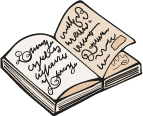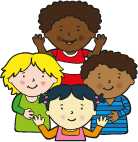Unlocking the Magic of Literacy in EYFS: A Guide for Parents and Educators
Literacy in the Early Years Foundation Stage (EYFS) is crucial for a child's development. Learning to read and write doesn't happen all at once! It involves a series of stages that lead to the ability to read and write successfully. The first years of a child's life are the most important for their cognitive development. It's during these early years that their brain develops most rapidly, and they acquire the majority of their linguistic and cognitive skills.
Play-based Activities
Play-based activities are essential for developing early literacy skills in EYFS. When children engage in play, they're not just having fun. They're also learning important language and literacy skills. Through imaginative play, children develop their vocabulary, grammar, and storytelling abilities.
They learn to express themselves and communicate effectively. Play also provides opportunities for children to explore print materials, such as books, signs, and labels. This exposure to print helps children understand the role of print in their everyday lives.
Print-Rich Environment
Providing a print-rich environment is a crucial aspect of early literacy development. This environment includes a variety of print forms, such as books, magazines, posters, and labels.
It also involves creating purposeful print displays, like a word wall or a writing centre. A print-rich environment exposes children to different types of print, helping them recognise letters, words and sentences. It also encourages children to engage with print materials, fostering a love for reading and writing.
Storytelling and Role Play
The power of storytelling goes beyond the simple telling of a tale.
Stories stimulate imagination and play, which contributes to child development in a multitude of ways, including language and literacy skills. Storytelling helps children understand narrative structure, develop vocabulary and enhance their listening skills. Role play activities, such as acting out stories or pretending to be characters, further support language and literacy development. Children engage in rich language experiences, use new vocabulary, and practice their communication skills.
Phonics and Phonological Awareness
Phonics is a crucial part of early literacy teaching. It provides children with the tools to decode words and is a key strategy in teaching children to read. Phonological awareness activities, such as rhyming games and sound recognition exercises, help children develop an understanding of the sounds of language. This awareness lays the foundation for reading and writing skills. By learning letter-sound relationships, children can blend sounds together to form words and segment words into individual sounds.
Fine Motor Skills
Developing fine motor skills is an integral part of early writing.
It helps children gain the strength and dexterity needed to hold a pencil correctly and make precise movements. Activities such as mark-making, threading beads, or using playdough engage children's hand-eye coordination and finger muscles. These activities prepare children for the physical aspects of writing, allowing them to control their pencil and form letters and shapes with confidence.
Fine Motor Activities for EYFS
Effective Communication
Effective communication is more than just exchanging information.
It's about understanding the emotion and intentions behind the information. In EYFS, developing effective communication skills is an essential aspect of literacy. Through conversations, children learn to express their thoughts, listen to others, and understand different perspectives. Encouraging meaningful conversations and providing opportunities for children to share their ideas and feelings supports their language and literacy development.
Parent and Carer Involvement
The role of parents and carers in a child's literacy development is crucial. When parents and carers are involved in their child's learning, it can make a real difference to their child's development. Reading books together, engaging in storytelling, and having conversations about everyday experiences all contribute to a child's language and literacy skills. Parents and carers can also create a print-rich home environment, with books, labels, and signs. By supporting their child's literacy development, parents and carers provide a strong foundation for future academic success.
Assessment and Observation
 Assessment is not about labelling a child, but about understanding where they are in their learning and development and planning what to do next. Regular assessment and observation in EYFS help track a child's progress in literacy. It provides valuable insights into a child's strengths and areas for improvement. By understanding a child's literacy skills, educators can tailor their teaching to meet the individual needs of each child. Assessment also helps identify any potential barriers to learning and enables early intervention.
Assessment is not about labelling a child, but about understanding where they are in their learning and development and planning what to do next. Regular assessment and observation in EYFS help track a child's progress in literacy. It provides valuable insights into a child's strengths and areas for improvement. By understanding a child's literacy skills, educators can tailor their teaching to meet the individual needs of each child. Assessment also helps identify any potential barriers to learning and enables early intervention.
How Can Mighty Writer Help Transform Literacy?
